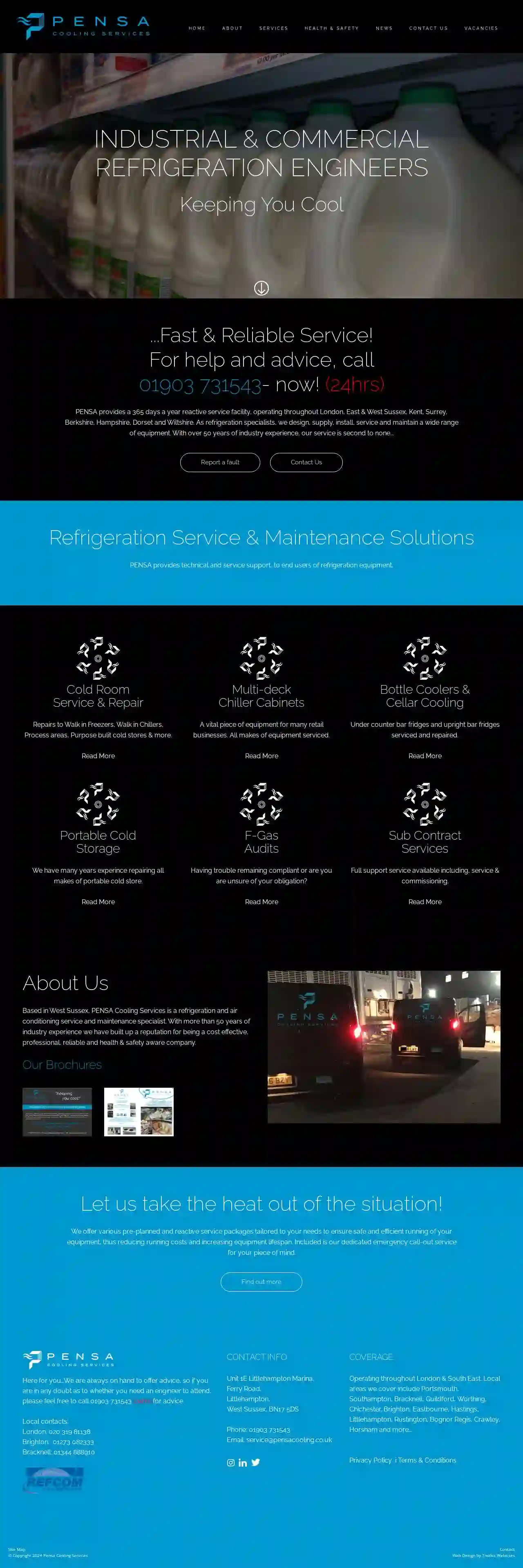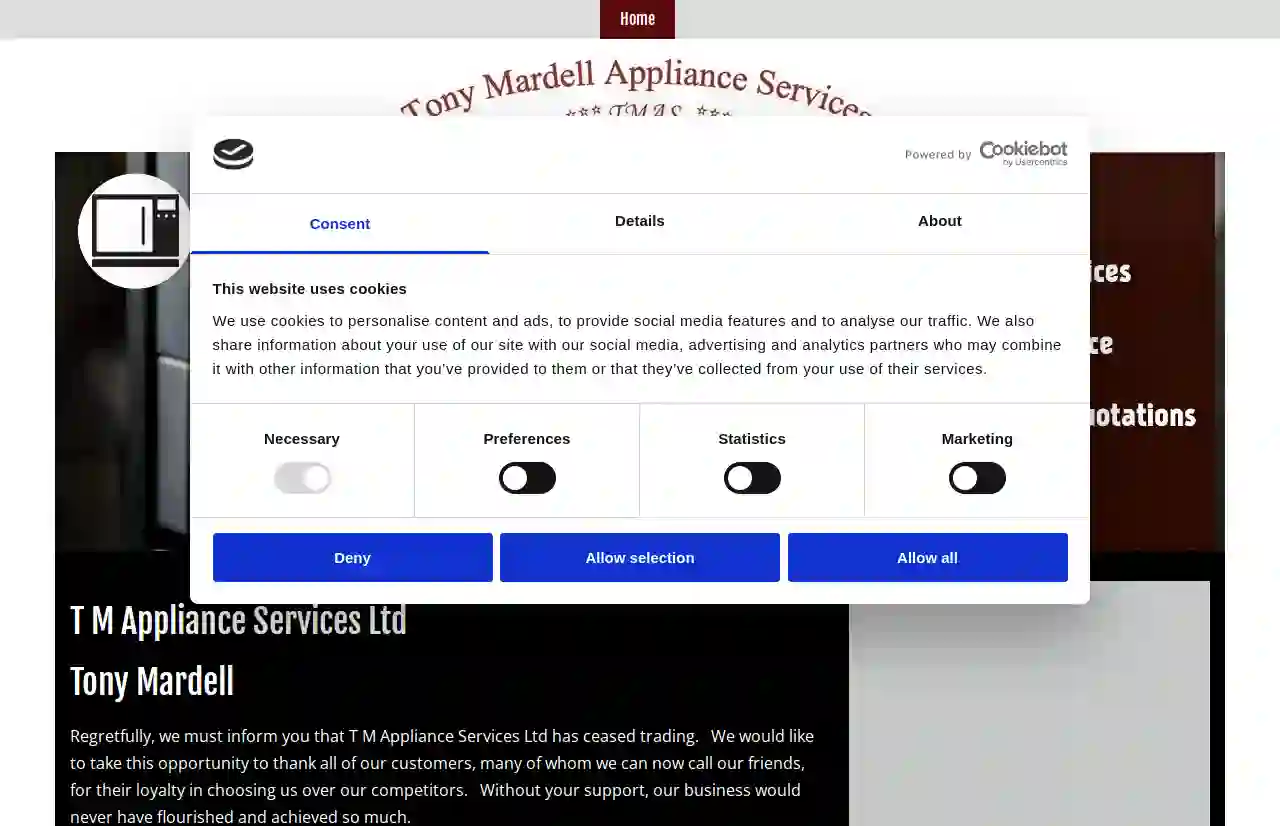AC Replacement Littlehampton
Find AC Replacement in Littlehampton
Get 3 FREE AC Replacement quotes for your project today! Compare profiles, reviews, accreditations, portfolio, etc... and choose the best offer.

Shoreline Plumbing, Heating & Gas
553 reviewsRustington, GBBig Enough to Cope, Small Enough to Care. Welcome to Shoreline Plumbing, Heating & Gas. Our simple 4-step process: Get In Touch, Free Survey, Free Quote, and We'll do the rest. We're a professional team providing services such as Underfloor Heating, Plumbing, Heating, Bathroom Installation, Commercial Services, Boiler installation, Boiler Service, Boiler Repair, Oil Boiler Installations, Powerflushing, Gas Safety Checks, Water Softener, and Service Plans.
- Services
- Why Us?
- Our Team
- Testimonials
- Gallery
Get Quote
Pensa Cooling Services
1Littlehampton, GB- Services
- Why Us?
Get Quote
T M Appliance Services
4.618 reviews30-32 South Street, Worthing, BN14 7LN, GBT M Appliance Services Ltd, formerly owned and operated by Tony Mardell, has regrettably ceased trading. We extend our sincere gratitude to all our valued customers, many of whom have become cherished friends, for their unwavering loyalty and support. Without your patronage, our business would not have achieved the success it has. If you require assistance with domestic appliance repairs or replacements, please contact our colleagues at R Barker (Tarring) Ltd. They can be reached at 01903 785410 or 01903 233680. Their shop is conveniently located at 30-32 South Street, Worthing, West Sussex, BN14 7LN. Thank you for your understanding.
- Services
- Why Us?
- Gallery
Get Quote
Over 1,991+ HVAC Companies on our directory
Our HVAC pros operate in Littlehampton & surroundings!
HVACCompaniesHub has curated and vetted Top HVAC Businesses near Littlehampton. Find the most reliable contractor today.
Frequently Asked Questions about AC Replacement
- The size and type of AC unit: Larger, more complex systems will naturally take more time to install.
- The condition of existing ductwork (if applicable): If your home has existing ductwork, the contractor will need to inspect it and ensure it's compatible with the new AC unit before installing the new unit.
- Accessibility: Easy access to your existing unit and the installation location will help streamline the installation process.
- Electrical work: If any electrical upgrades are required, the timeline may be longer.
- Turn off the power: Before cleaning, disconnect the power to your AC unit at the circuit breaker.
- Clean the outdoor unit: Remove obstructions and debris from the exterior unit. Use a garden hose to rinse the condenser coils and fins.
- Clean the indoor unit: Remove the access panel to the air handler and clean or replace the air filter. Remove any visible dust and clean the drip pan to prevent mold growth.
How long does it take to replace an AC unit?
How do I clean my AC unit?
What is a heat pump, and how does it work?
What is a SEER rating?
How long does it take to replace an AC unit?
- The size and type of AC unit: Larger, more complex systems will naturally take more time to install.
- The condition of existing ductwork (if applicable): If your home has existing ductwork, the contractor will need to inspect it and ensure it's compatible with the new AC unit before installing the new unit.
- Accessibility: The ease with which installers can access your HVAC equipment will help streamline the installation process.
- Electrical work: If any electrical upgrades are required, the installation process may be longer.
How do I clean my AC unit?
- Turn off the power: Before cleaning, disconnect the power to your AC unit at the circuit breaker.
- Clean the outdoor unit: Clear away any debris, such as leaves, grass, and dirt, from around the unit. Carefully rinse dirt or grime from the unit's exterior.
- Clean the indoor unit: Remove the access panel to the air handler and check the filter. Gently vacuum the evaporator coil fins and drip pan.